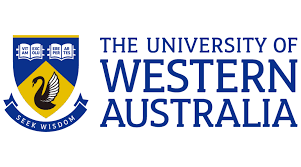University of Western Australia: UWA and Neuro Vigor announce drug development collaboration
The University of Western Australia and Neuro Vigor, a Purdue University-affiliated biotechnology company, have announced a collaboration to develop proprietary drugs to target neurodegenerative diseases and pain in spinal cord injury.
Associate Professor Dr Louis Pymar, from UWA’s School of Social Sciences, said the focus will be on new chemical entities to neutralise reactive aldehydes associated with multiple inflammatory diseases and trauma.
“Reactive aldehydes are highly toxic molecules released by cells in response to external or internal stress and trauma,” Dr Pymar said.
“They increase significantly in inflammatory, neurotraumatic and neurodegenerative disease states, damaging tissue at the cellular and molecular levels, perpetuating a destructive cycle of inflammation and oxidative stress.”
Neuro Vigor CEO Mark Van Fleet said the new collaboration would jump-start the science and technology needed to bring relief to patients suffering from neuropathic pain or neurodegenerative diseases.
“The agreement combines Neuro Vigor’s grasp of the preclinical neurobiology and the importance of neutralizing reactive aldehydes with UWA’s discovery of novel drug compounds that have exciting clinical promise.”
Neuro Vigor CEO Mark Van Fleet
From a group of compounds identified by UWA researchers, the partners will initially assess preclinical reactive aldehyde scavengers, which have the best potential as therapeutic agents to curb pathology in multiple diseases, including spinal cord injury neuropathic pain.
The first stage of the two-year joint R&D effort will be funded by grants to Neuro Vigor from UWA and the Indiana Spinal Cord and Brain Injury Fund.
Under the agreement, UWA has granted Neuro Vigor an exclusive option to license the resulting intellectual property of chemical entities resulting from the collaboration.
“We’re delighted to have partnered this program with Neuro Vigor and look forward to seeing this collaboration develop,” Dr Pymar said.

